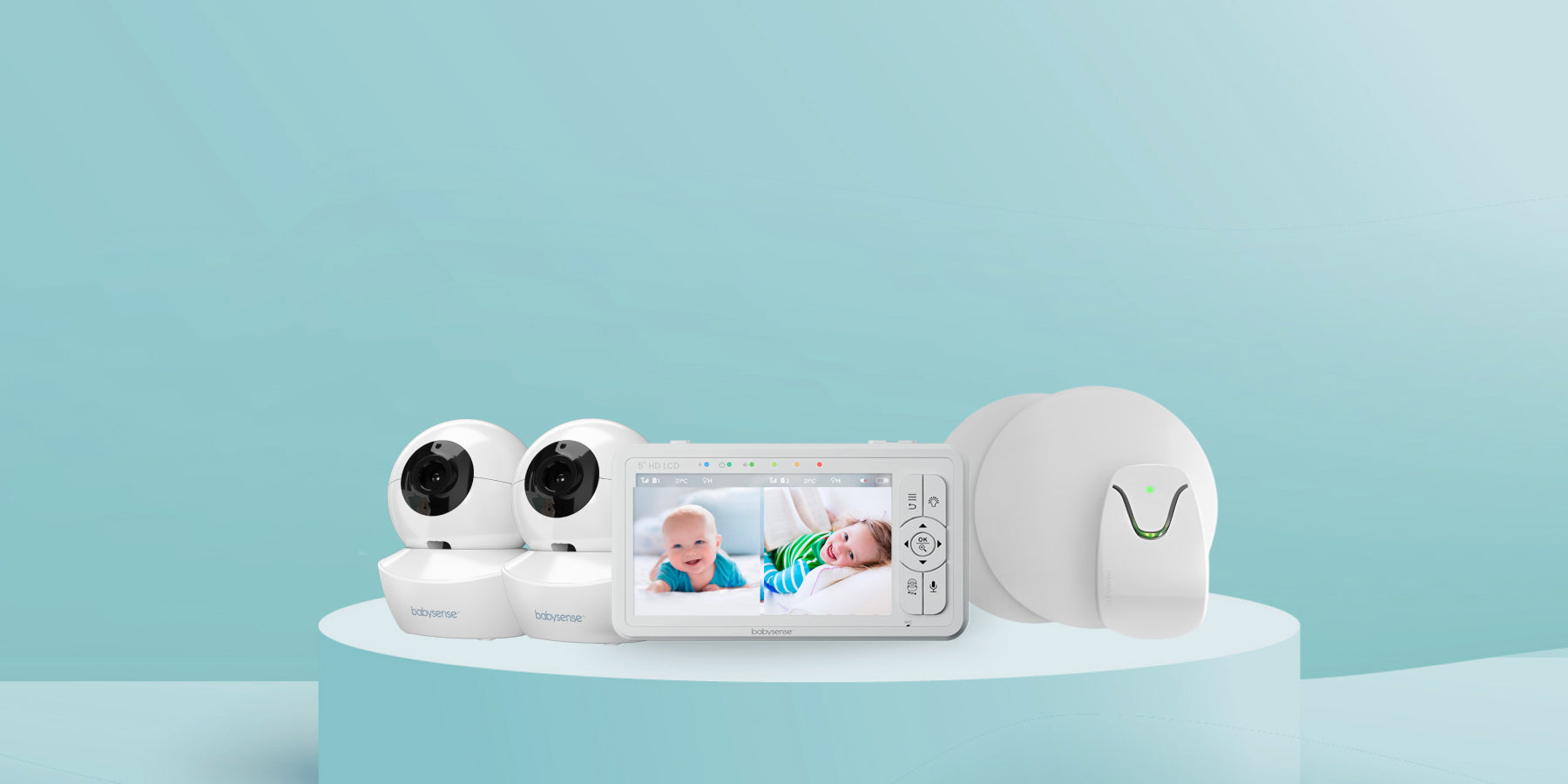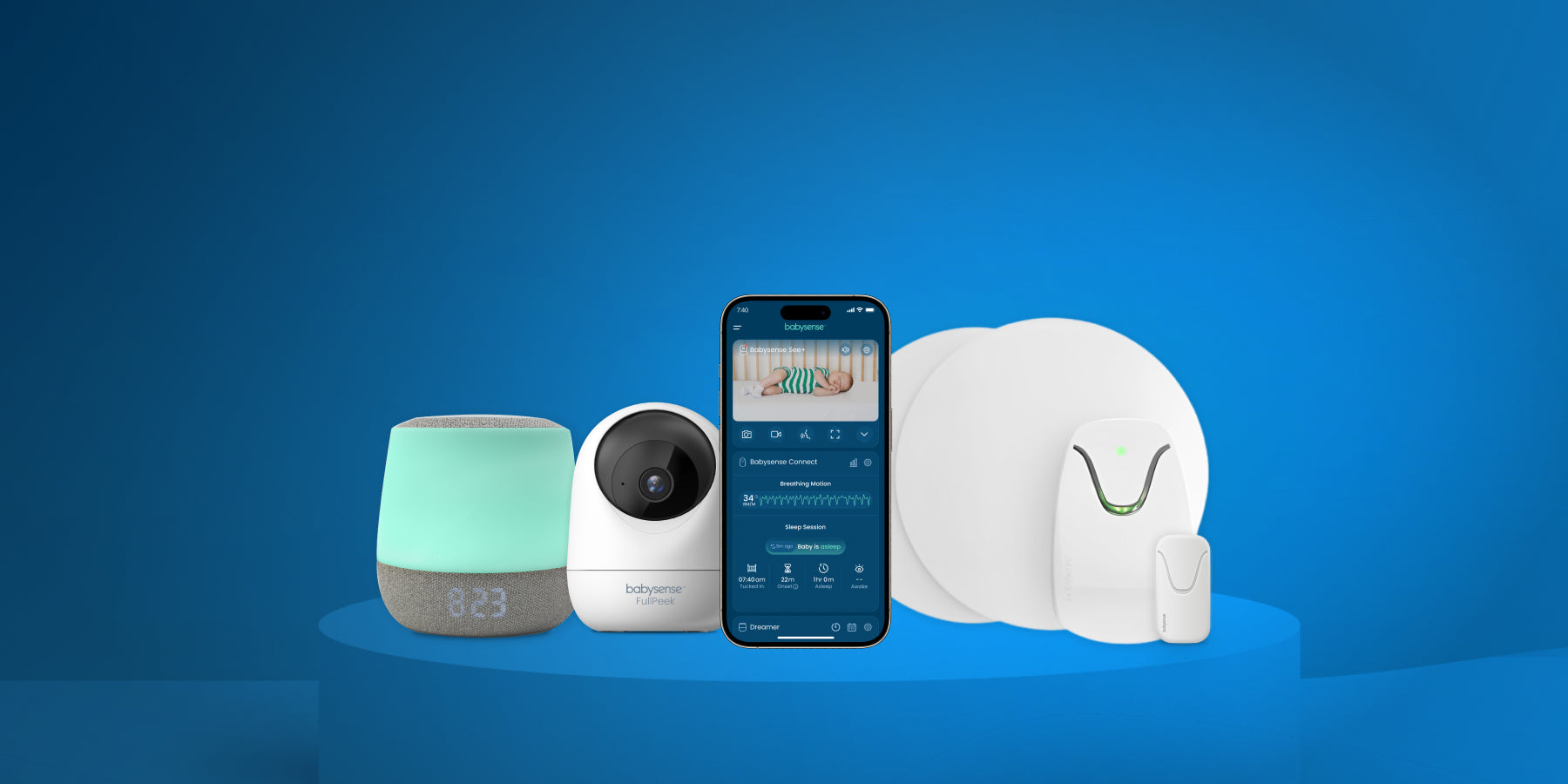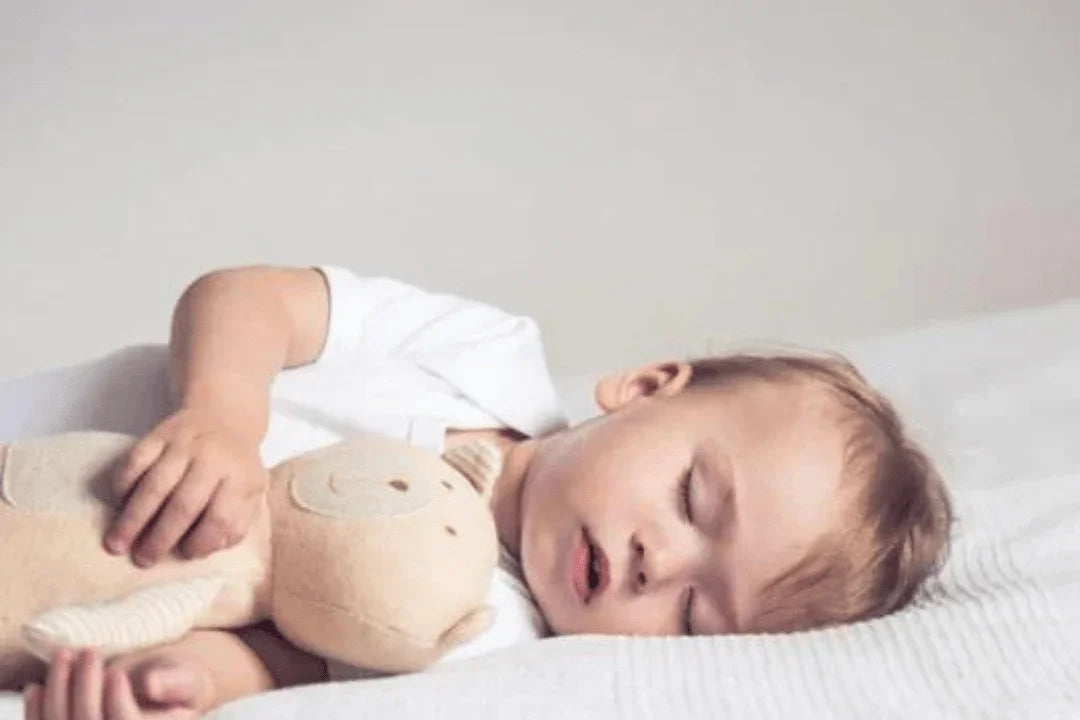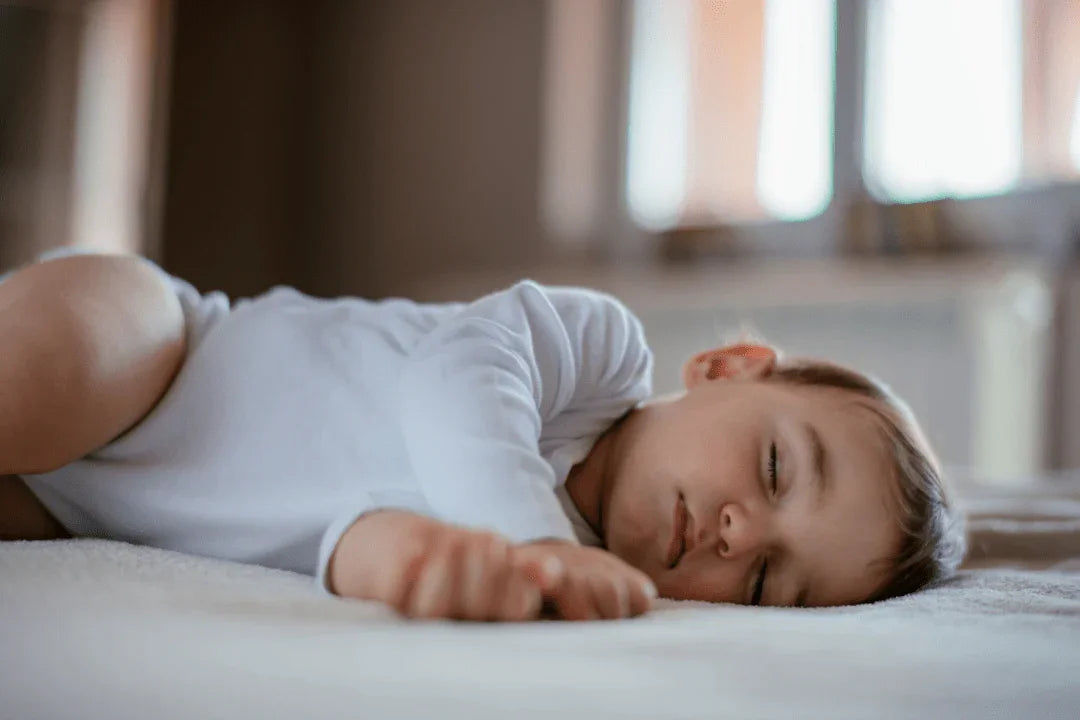Baby monitors have become an important piece of tech for parents. A baby monitor puts your mind at rest by allowing you to keep an eye on your little ones as they sleep, play and explore. This is particularly helpful if you're a first-time parent still figuring out this whole parenting thing!
Audio and video baby monitors can offer anxious parents some much-needed reassurance.
If your young baby is sleeping in a different room to you, using a baby monitor seems obvious. But what about once they get a little older? It can be challenging to know when to turn off the monitor for good.
Read on for all the must-know info about baby monitor usage, including when to stop using a baby monitor and how to phase out using a monitor in your home.
When should parents stop using baby monitors?
Like so many aspects of parenting, there's no set answer to this question. It depends on your family's circumstances and what you feel comfortable with as a parent.
There's no official healthcare recommendation; it depends on when it feels suitable for your family.
To reduce the risk of SIDS (Sudden Infant Death Syndrome), experts recommend that your baby sleeps in the same room as you for the first six months of their life. After that, you can safely choose to move your baby's crib to their room and invest in a baby monitor to remain watchful.
There's no fixed age that a child 'grows out' of needing a baby monitor. While many parents stop using a baby monitor when their child is around two, others feel more comfortable continuing to use it for longer.
Rather than ceasing to use an audio or video monitor once your child reaches a certain age, weigh up the pros and cons of continuing to use one.
Why should you stop using a baby monitor?
If you're considering phasing out your child's audio or video monitor, it's important to weigh up your reasons for doing so.
Here are some common reasons parents decide to unplug their baby monitor for good.
The child is aware they're being watched
While intended to let you observe your baby sleeping and playing, while they're peacefully oblivious, your child may become aware that they're being watched by the time they are 3 or 4.
As parenting coach Aubrey Hargis has pointed out, children may modify their behavior if they don't feel comfortable being watched in particular ways.
Your child's bedroom should be their safe space, so a baby monitor should never act as an infringement on their privacy.
When your child starts to understand modesty and a sense of their privacy, it's time to consider ditching the baby monitor.
They have already fully adjusted to their own bed
Baby monitors can be great at easing the transition from sharing a bedroom with your baby to having them in their own space. They help you oversee your child's adjustment into a new bed - after all, this is a big step for your little one.
Once your baby can sleep comfortably in their own bed, it may be time to retire the baby monitor.
If your toddler can sleep comfortably in their toddler bed, then you have less night-time disruption to worry about.
The video monitor is badly affecting your own sleep
While it's great to be able to keep a watchful eye over your baby, your sleep is important too! There's no more demanding job than that of a parent - so you need your rest.
Throughout the night, your baby makes all manner of noises as they wriggle around to get comfortable. Audio monitors carry all of these sounds into your bedroom, which, unsurprisingly, will wake you up.
While regular sleep interruptions are to be expected when your baby is young, the monitor shouldn't be keeping you awake all night.
Many parents opt to turn off their audio monitors when they sleep. Turning the audio on occasionally provides you with a way of checking up on your baby while still getting the sleep you need.
Reasons to continue using a baby monitor
Although there are many reasons that parents cease use of their baby monitors, there are also lots of reasons for continuing use.
Here are some of the situations in which we'd recommend continuing with your baby monitor:
There are younger siblings in the same room
If your toddler or child's bedroom is also your baby's room, you may feel it necessary to continue using the monitor.
Of course, you don't want your older children to feel like their privacy is being invaded. If they seem aware of the video or audio monitor's presence, it's a good idea to chat with them about it. Explain that it's there for you to keep their younger sibling safe - not because you want to spy on them!
You'd struggle to hear your child without it
Although children are more independent once they reach the age of 3 or 4, there will still be times when they call out for you in the night. For younger toddlers and babies, this is even more likely.
If you have a big house or particularly thick walls that block sound, it may be difficult for you to hear your child in another room.
In case of an emergency, you need to be able to hear your child, and this is where monitors can help. If you'd struggle to hear your baby, toddler, or child without a monitor, it may be a good idea to continue using one for the time being.
Your child hasn't fully adjusted to sleeping alone
When they've become used to sleeping near you for the first six months of their life (or more), it can be tricky for a little one to adjust to sleeping alone.
Though there's no set time frame for this transition, it will undoubtedly take a little while for your baby to feel comfortable in their bed.
To ensure you hear when your baby is in distress, it's good to use an audio baby monitor or the audio only option of the video monitor during this period. If you find yourself waking up every time your baby coughs or moves, you may want to consider video monitors instead.
How to phase out a baby monitor
If you've decided to transition away from using a baby monitor, it can be difficult to know where to start.
You don't just have to abruptly stop one day. Indeed, this sudden change may cause you more anxiety. Phasing out your baby monitor usage will give everyone the time to adjust to the change.
Here are some ways that you can phase out using a baby monitor in your home:
- Start by switching it off at night. If the baby monitor significantly affects your sleep, the best thing to do is to switch it off when you get in bed. This way, you won't be stirred by every noise your child makes, and you may soon feel comfortable turning it off for good.
- Switch it off, but keep it close. If you're anxious about going without a monitor entirely, try switching it off but keeping it nearby. You can turn it on from time to time when you want to check on your baby - but you're not preoccupied with it constantly.
- Switch off the audio, but keep the video on. If you've got a baby monitor that provides both audio and visual monitoring, consider turning the audio off completely. Many toddler parents favor this method, as you can spot any dangerous antics (like climbing) without hearing every noise.
FAQs
Does a one year old need a baby monitor?
Though there's no general rule, most parents use a baby monitor until their child reaches the one-year mark.
However, some evidence suggests that turning off the monitor earlier helps both parent and child develop healthier sleep habits.
Once your baby can sleep through the night, a baby monitor is certainly less necessary at night.
Why won't my child sleep through the night?
Unfortunately for tired parents, there's no straightforward answer to this question. There are, however, some common culprits that cause sleep training to go awry. Here are some of the most common reasons that young children have trouble sleeping through the night:
- Excess energy, particularly if they had a long daytime nap.
- Hunger.
- Being too hot or cold.
- Night terrors.
- Feeling unwell.
- Lack of routine/feeling unsettled.





